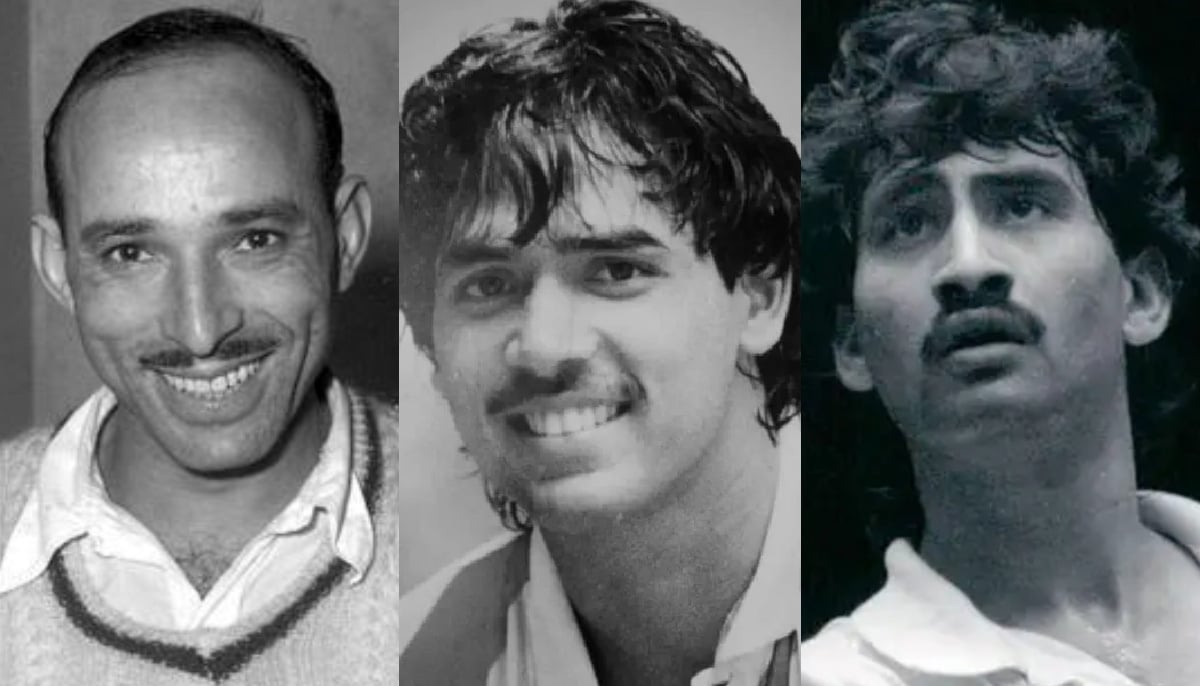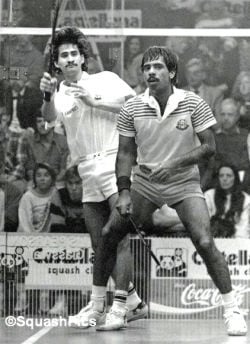Ball is in 'system's' court: Can Hamza Khan's big win spur Pakistan's squash supremacy?
If Hamza's monumental triumph gets the usual mistreatment, then questions on the system will continue to be raised

The highly-talented Pakistan squash prodigy Hamza Khan proved his mettle as one of the top junior players in the circuit as he stood the tallest in the final of the World Junior Squash Championship against Egypt’s Mohammad Zakaria.
Without a doubt, a player like Hamza is our future asset, as he also displayed his talent in the top events in the past, having won the Junior British and US Championships in 2020 and 2021, respectively.
While the recent accomplishment of Hamza is a lesson for those sitting in the echelons of power that if professional and concrete steps are adopted, we still have the talent to revive ourselves on the world squash map.

The news of the historic triumph splashed as a moment of pride that ended our 37-year World Junior Squash Championship title drought. It is indeed a dawn of new hope for Pakistan squash, considering the massive slump we have seen over two decades.
Apart from Hamza, Noor Zaman, Ashab Irfan, and Anas Bokhari are those talented youngsters who can help to revive the lost glory of the game in which Pakistan has won 14 World Open and 30 British Open titles.
The Golden Period
It is pertinent to mention that Pakistan held astonishing supremacy in squash for almost five decades as the Khan dynasty ruled the sport.
It all started with the late Hashim Khan, who won the 1951 British Open title and went on to clinch, a further six championships till 1959. He was the architect behind the rise of Pakistan as the superpower in squash.

Azam Khan and Roshan Khan also won the British Open titles, but Jahangir and Jansher’s staggering domination made Pakistan an incomparable squash nation. Both of them not just won the World Open and British Open titles back and forth. But they also displayed supreme fitness, a never-say-die attitude, and top-class professional standards.
Reasons of Decline
However, after Jahangir and Jansher's departure, successes for Pakistan squash have been few and far between, so much so that we failed to do well in the events that hardly mattered to us during our days of domination.
The passion and interest of the masses towards cricket can also be a reason, but it is fair to say that we took success for granted during the heyday and never adopted the new advancements. The style of the game started changing technically, and we were just stuck into the 80s and 90s era. Above all, a lack of coaching on modern ways, and a lethargic attitude on the part of the government and the top officials further impeded our progress.

After 2000, players like Amjad Khan, who won some international events, showed potential, while the youngsters in the form of Shahid Zaman or Imran Mohib had the guts but were no match to the international players. The example of the 2010 Asian Games is noteworthy as Pakistan clinched the Gold Medal in the Men's Team Category, after which Atlas Khan and Farhan Mehboob emerged as good prospects.
The victory not only came as a boost to squash. It was the chance to utilise it and bring measures to revive the game. Unfortunately, it was the chance which went begging. And with the recent triumph, if a player of Hamza's potential gets destroyed, it is indeed a fault of our system.
Future policies
Despite our decline in hockey and squash, there have been moments we failed to capitalise on. Moreover, with the triumph of Hamza being at the world level, there should be measures that could help address the decline.
There is no doubt that, unlike cricket, games like hockey and squash suffer from a shortage of funds and overall world-class facilities due to a lack of sponsorships and viewership. But, it is high time that the federal and provincial governments should seize the chance and adopt measures to uplift the game.
Hamza’s victory should get appreciation at the national level through a proper event. And more importantly, the government should inject massive funds into the relevant squash bodies besides ensuring transparency.
The Pakistan Squash Federation (PSF) should arrange open trials in urban and far-flung cities to unearth new players. It should also bring coaches from countries, including Egypt, England, or Australia, to somehow bridge the gap in coaching methodologies followed by Pakistan and other nations.
More importantly, keeping in mind that the departments have been revived in all the major sports by the PDM-led government, it is the ideal time for state-owned organisations like PIA, Pak Navy, Air Force and Pak Army – having a history of serving squash – to invest in the game by enhancing the facilities, attracting young kids, and providing players with jobs and financial viability.
If such policies get implemented, the game of squash will get a massive boost and can be on the track of revival. But, like previous occasions, if Hamza's monumental triumph gets the usual mistreatment, then questions on the system will continue to be raised.
Syed Irtiza Ali is a sports enthusiast and finance student.




